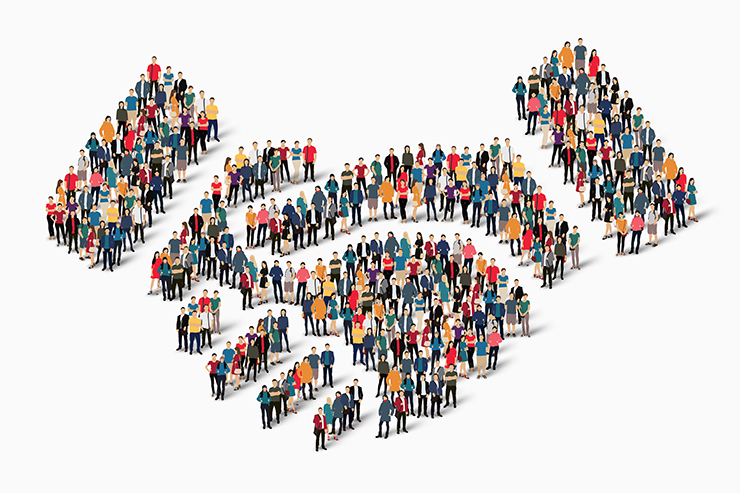
Images Credit: Shutterstock
Somewhere in the world, a customer or client is wondering…
- Is anyone ever going to call me back?
- Has my order shipped?
- When is the (service provider) coming?
All these questions boil down to one thing: “Does anyone care enough to own my issue and help me address it?”
In a world of artificial intelligence (AI) and highly automated processes, companies can easily overlook one very important component of their success: their customer!
Systems are great, and needed. But it can make it way too easy for a customer to get lost in the system.
- “I thought someone had already done that.”
- “I thought someone had called you.”
- “I thought someone had scheduled with you.”
- “I thought someone had delivered the package.”
The problem is, those “someone’s” don’t “own” the issue.
Service is a hallmark of great teams and companies. How can you, as a leader, ensure your company’s service creates a stellar customer service experience?
Here are seven “abilities” you can cultivate within your organization to make a difference.
Causability
Causability is the ability to act upon a cause and create a desired effect.
Proactive leadership across the entire organization creates a compounded reaction, where the work gets done and customers are served at all levels. Like nuclear energy, the power comes from fission, which is essentially dividing the power across the organization. In a power plant, this creates the steam that runs the generators that produce electricity. If your organization lacks power, and your team is running out of steam, it could be an indicator that there is no division at the core.
Causability is ownership of the action, and dividing that ownership across all levels increases power.
Liability
Many leaders are quick to take the credit for their actions or the actions of their team; but fewer are willing to take the blame.
Being a leader brings inherent responsibility. President Harry Truman had it right. He positioned a sign on his desk in the Oval Office that said, “The buck stops here.”
Liability is ownership of the outcome – it is taking the responsibility for results. This increases respect.
Teachability
One the most valued attributes of a leader is teachability. No matter how much a person knows, there is always more to learn. Great leaders are those who learn from each person they encounter.
Teachability is ownership of growth. Great leaders realize that, no matter their position, they have never fully “arrived” and that there is always more to learn. Learning increases effectiveness.
Accessibility
It doesn’t matter how much you know or do if you are not accessible to your team. Teams need active leadership.
Accessibility is ownership of service. It is serving your team and your team serving your clients and customers. It is, very simply, the act of “being there” to serve people.
Credibility
Values are bedrock. A person with solid values generates loyalty and respect. Even if someone doesn’t agree with your values, they will respect you for having them. Character and good leadership go hand in hand. While there are many leaders who lack character, they are leaders “in name only,” or, as John Maxwell calls them in his book, The Five Levels of Leadership, this is positional leadership.
Credibility is ownership of values. It is having a solid foundation on which your leadership and company culture are based.
Measurability
Goals measured are goals reached. You do this by setting a date, establishing benchmarks, or setting quotas, for example. Good leaders are not generalists. They have defined objectives and benchmarks. They have defined results, which allow them and their teams to know when a goal has been reached.
Measurability also allows team members to be rewarded accordingly.
Measurability is ownership of goal achievement. It is actively creating a structure for success.
Durability
This is a disposable society. Everything from utensils to electronics is built to serve a temporal purpose. If you have ever had to fix a broken printer, you know they are built with plastic parts, and there is no way to fix them once certain parts are broken.
Organizations, left unattended by solid leadership, can fall into the disposable trap as well. Businesses start and can end quite rapidly. Between quality issues, social media, and globalization, the stakes are high.
Durable leadership takes a longer-range view of business. These leaders focus on quality, outstanding service, and the growth of their teams. They value their products, customers, and employees, rather than seeing them simply as “expendable.”
Durability is ownership of quality. It is placing high value on products, customers, and employees.
How are YOUR leadership abilities? Are you the “someone” who owns each? Do your team members share in that ownership and exhibit these abilities?
—
For more resources on how you can strengthen your leadership abilities and those of your team, click here to learn about the Maxwell Method of Communications Impact Report.
As the CEO of Strength Leader Development, Deb Ingino is a highly sought-after international executive mentor, coach, trainer and speaker. Deb is well versed in global business operations and helps business leaders and their teams to discover and leverage their strengths, so they can create highly collaborative teams that deliver great results. With a refreshingly direct style, Deb helps leaders and their teams to deliver profitable results. Connect with Deb to learn more about her mentorship and coaching programs to equip you with advanced strategies to elevate your results.
+ view comments . . .